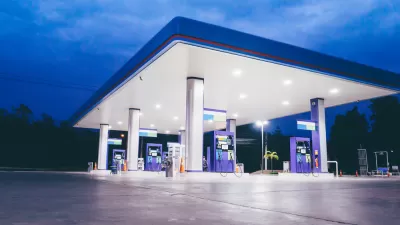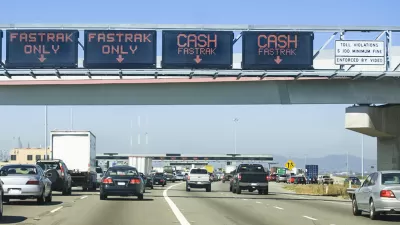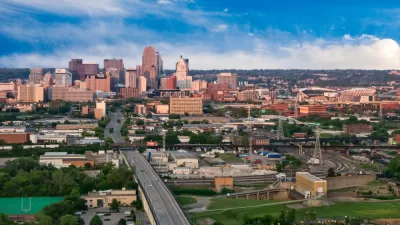When Congress recently failed yet again to pass a long-term surface transportation bill, Representative Earl Blumenauer decided it was time for a reality check.
Congress is doing damage, Blumenauer says, because short-term fixes just create "fits and starts": "You don’t get the big multistate, multimodal, multiyear projects because you simply cannot plan them. You are not getting the benefits of harnessing the power of this investment for the overall economy."
Fighting in Congress has forced infrastructure projects into those fits and starts for decades, with sometimes disastrous results. But it wasn't always this way.
Until the '90s, both parties had cooperated to fund surface transportation since the federal government created the National Interstate and Defense Highways program in 1956—usually by increasing the gas tax. Even President Reagan got Congress to raise the gas tax by 125 percent in 1982.
Blumenauer says increasingly anti-tax and -government views among Republicans in Congress have helped polarize the issue. But, he points out, many Republicans are happy to fund surface transportation at the state and local level.
This year alone, six Republican states voted to do so by increasing the gas tax—the "simple" solution Blumenauer has advocated for at the federal level for years. Advocates say updating the gas tax is a simple way to generate consistent revenue, especially since it hasn’t been adjusted for inflation since the last full transportation bill was passed in the '90s.
In The Planning Report, Blumenauer details the essential elements of a fully funded surface transportation bill: public-private partnerships, tolls, and road-user charges accompanying the gas tax increase. And he's optimistic that when Congress comes back into session, they’ll have no choice but to work it out:
"The good news is that more momentum is building at the state and local level. The coalition is broad and growing, and we’re running out of alternatives. We’re looking at an America that used to have the finest infrastructure in the world when we started in this business. Sadly, that is no longer the case. I’m hopeful that work at the state and local level will help prompt people to step up and take action."
FULL STORY: A Reality Check: Do Too Many Republicans Want to Defund Federal Surface Transportation Investment?

Planetizen Federal Action Tracker
A weekly monitor of how Trump’s orders and actions are impacting planners and planning in America.

San Francisco's School District Spent $105M To Build Affordable Housing for Teachers — And That's Just the Beginning
SFUSD joins a growing list of school districts using their land holdings to address housing affordability challenges faced by their own employees.

The Tiny, Adorable $7,000 Car Turning Japan Onto EVs
The single seat Mibot charges from a regular plug as quickly as an iPad, and is about half the price of an average EV.

Seattle's Plan for Adopting Driverless Cars
Equity, safety, accessibility and affordability are front of mind as the city prepares for robotaxis and other autonomous vehicles.

As Trump Phases Out FEMA, Is It Time to Flee the Floodplains?
With less federal funding available for disaster relief efforts, the need to relocate at-risk communities is more urgent than ever.

With Protected Lanes, 460% More People Commute by Bike
For those needing more ammo, more data proving what we already knew is here.
Urban Design for Planners 1: Software Tools
This six-course series explores essential urban design concepts using open source software and equips planners with the tools they need to participate fully in the urban design process.
Planning for Universal Design
Learn the tools for implementing Universal Design in planning regulations.
Smith Gee Studio
City of Charlotte
City of Camden Redevelopment Agency
City of Astoria
Transportation Research & Education Center (TREC) at Portland State University
US High Speed Rail Association
City of Camden Redevelopment Agency
Municipality of Princeton (NJ)





























